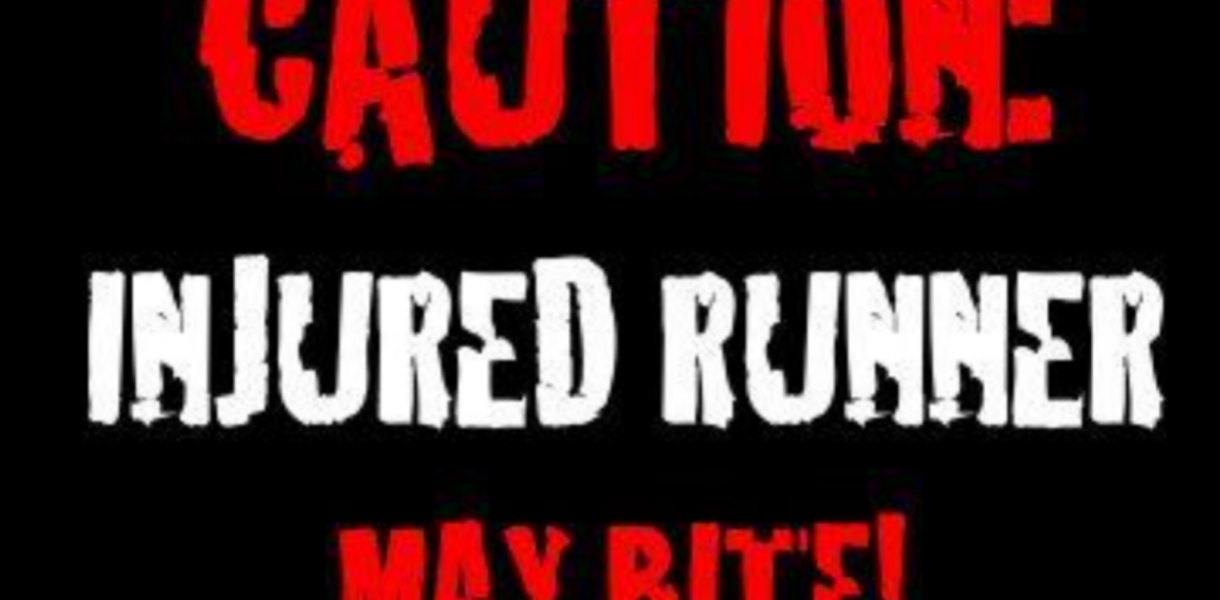In my short career as an endurance athlete I have experienced more than my fair share of injuries. From the very get go I had issues with my ankles and knees from running in an old pair of Skechers from the mall, I didn’t know anything about proper running shoes. That was remedied with my first pair of real running shoes with some stability in them. (I no longer need stability shoes, it’s good to get your fit adjusted every couple years) From there I went on to have a pretty severe IT band issue training for my first marathon, and the list goes on and on. Ten marathons and multiple IRONMAN trialthons in 9 years add up to a LOT of training time. I think a lot of the injuries stem from the fact that I went from couch potato to hard core marathon/Ironman training in a short period of time and my body was like “What the heck, lady?” Over the years I have tried to focus on prevention, with a more diverse training regimen and a focus on strength work and I think that has been somewhat successful at keeping the overuse injuries at bay.
Before Covid-19 came in like a wrecking ball in 2020 my year had already been derailed. I was unable to complete my goal marathon in January due to a still undiagnosed pain along my iliac crest that popped up last fall during my training cycle. To add insult to that injury (literally) I pulled an intercostal muscle in my ribcage right before that marathon as well. That left me on the couch unable to move or breathe. (For the record I did attempt to run the marathon. Let’s just say it did not go well) I ended up taking quite a lot of time off running in the winter season and it wasn’t really until April that things started to come back together. Well, over the course of this year I have gone on to pull 5 more muscles with varying levels of pain/agony/annoyance. But each time it means a long process of healing where I either can’t run or can only run very little and I can’t strength train at all. You need those muscles to lift things. It’s beyond frustrating as there is no rhyme or reason why it happens and no hurrying up the healing process. It has been non stop setbacks and starting over. In the grand scheme of things 2020 was a great year to have been a total cluster as I didn’t really miss out on much, but it has still really sucked. As well as not really having any means of preventing further injuries is also frustrating.
Most anyone who is an athlete has had at least one injury, and while yours may not look like mine the thoughts, feelings and emotions around it are usually the same. Without being too melodramatic I feel going through it is similar to the 5 stages of Grief.
- Denial. I’m not really hurt…I can run through this pain.
- Anger. Why me? Stupid broken down body, can’t get anything right.
- Bargaining. If I can just get through this race I’ll take time off, I promise!!
- Depression. I’m never going to run again.
- Acceptance. This too shall pass, everything is temporary, I just have to make the best of it.
Now that I have had SO many episodes I just go right from anger to acceptance. (I do still get mad every. single. time.) I know that I have to deal with it, I know it will pass, and I know I need to focus on the positive. I focus on what I CAN do. With the rib stuff I can still ride my bike on the trainer, as long as I don’t breathe too deeply. So that’s what I do. I’m on track to bike more miles this year than ever before, almost double my previous highest year. With running overuse injuries in the past I switched to swimming and cycling and lifting. Whatever your injury is look at what you CAN do and do that! If you have a long road to recovery due to a more severe injury I would look at setting up mini goals along the way, it gives you a focus and helps pass the time. Maybe this is a time to take up something you have wanted to try in the past. Yoga? Rowing? Skiing?
I know it’s one thing to say be patient, it will pass, it’s another thing when it’s you and it feels like eternity. And it can be quite a depressing time. Try and do, or not do, things that will make you feel worse. If you are active in your running/endurance community it can be really hard to see all those workouts on Strava/Facebook and not be part of it. Limit your social media exposure if it makes you feel worse. I know for myself I had to draw back from all the online challenges I was participating in. (And if you know me you know I LOVE a virtual challenge) To be unable to compete let alone complete a challenge did nothing to help my mental health. Better to just let that go for now. On the flip side, doing something in that community that you typically wouldn’t get to do, like volunteering, crewing, cheering can actually make you feel better! It’s a powerful thing to be a help to someone else and take the focus off yourself.
One more note on dealing with injuries. First, if you’re working with a coach, tell your coach!!! They need to know this stuff and they can’t help if they don’t know. Second, get a professional opinion. See a doctor. Don’t take advice from well meaning friends or random people on Facebook. Figure out what is going on and get a plan of action. That’s basically it. Figure out what’s going on, make a plan, follow that plan and be patient. And if all that fails there is always crying and drinking. 😉




